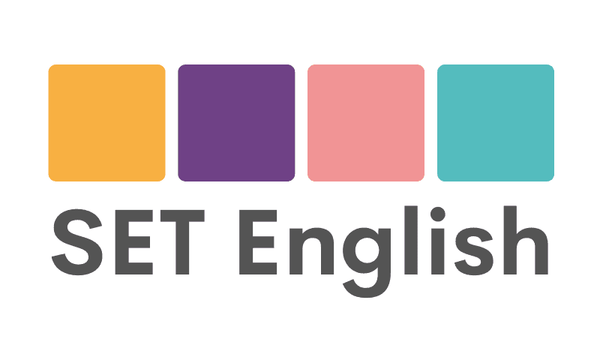
What are the OET Writing Criteria?
In our last post we covered 3 sections from the new OET Writing Criteria. Here is the link to that blog post: New OET Writing Criteria.
Here's some more guidance about the remaining 3 criteria.
Genre & Style
Genre is another word for category. There are lots of genres of music – rock, jazz, blues etc – and it is the same for writing. IELTS Academic writing tasks require writing in the academic genre. The register for that writing is strictly formal. OET writing is not academic, it is in the clinical genre.
What does clinical mean?
A clinical letter should contain language of a professional medical register and tone. This means vocabulary and phrasing which is typical when discussing healthcare issues. When we communicate we always make choices. For example, if we are discussing gastroenteritis we might mention:
-
tummy
-
stomach
-
abdomen
...which all refer to the same part of the body. Depending on who we are talking to, any of those words could be appropriate when communicating an idea. All adults understand the word 'stomach'. Medical professionals would probably use 'abdomen'. If you were speaking to a child, you would say 'tummy'. It's your choice!
So, we need to consider who we are writing to. Is the receiver a medical professional? Do they work in the same field as you?
Another thing I often see is something like this: 'You are required to assist Mr Smith with his activities of daily living.
This is a problem because it sounds like an order. That sounds impolite in English. So, try and remember that you are making a request. Something like this would be much better:
'It would be greatly appreciated if you could assist Mr Smith with his activities of daily living.
'Could you please assist Mr Smith with his activities of daily living.'
You need to :
-
Make it clear you understand who you are writing to by using appropriate language
-
Use abbreviations only when you are sure the receiver will understand them
-
Be careful to avoid making demands or giving orders. Be polite!
If you'd like to learn more about genre & style, let us know! Contact us.
Organisation & Layout
It's very important that your letter has a clear structure and an organised layout.
Layout is very simple and you can learn it very quickly. I won't go into detail here because it hasn't changed! If you want more information, please let me know!
Organisation is a key part of letter writing. To organise your letter, you need to have a clear purpose for each paragraph. Always remember somebody needs to read your letter, so it needs to be logical.
When you tell a story, you start at the beginning, and you follow the story all the way to the end. You don't jump to the end and then back to the middle. We tell stories logically. When we write our letter we must consider the flow of the story. We must consider which case notes are related, also. It isn't good to put something from the discharge plan in the first paragraph, next to admission symptoms!
You need to:
-
Have a clear understanding of the purpose of each paragraph
-
Show a logical flow of ideas from one paragraph to the next paragraph
-
Keep related information together
This is an important and confusing part of OET writing. Let us know if you want to learn more about this. Contact us.
Language
Language! The difficult bit! Before you get scared though, remember the point that I keep making: this is a letter that is going to be read by a fellow healthcare professional and they need to understand what you're saying and requesting.
This is not academic writing, in which spectacular grammar and vocabulary is essential to getting 7.0 and above. In OET writing, all of your grammar and vocabulary must be functional and relate directly to the information you are trying to communicate!
This criterion includes vocabulary, punctuation, grammar and spelling - so basically, anything connected to the actual words you use.
Punctuation
Full stops, commas and capital letters are all used in OET writing. There is no need to use anything else if you write well. Commas are a problem when people extend sentences. So, it's vital that you learn how to use conjunctions and different types of clauses. Capital letters should be used at the beginning of sentences, for names and for brand names of medication.
Spelling
There's no excuse for bad spelling! This requires practice and attention to detail! I have often seen incorrectly spelled patient and medication names. Avoid this type of mistake!
Vocabulary & grammar
Vocabulary and grammar are connected in some ways. There are different types of vocabulary. You have topic-specific words, such as diagnose, prescribe, undergo .... but you also have things like phrasal verbs, including turn over, get up lie down.....
They are all important words and it is easy to get them wrong! You should consider how the words change in different tenses, with the passive, when they are nouns... For example.
He was diagnosed with pneumonia.
He has a diagnosis of pneumonia.
She underwent an operation last week.
She has undergone several operations on her arm.
Tense is also vital, as you need to explain the circumstances around the patient's condition, which involves the past and the present. You also need to make a request, which involves the future.
Here is a list of some of the grammar points you should practice:
-
Word Types
-
Passive
-
Conjunctions
-
Clauses
-
Prepositions
-
Articles
-
Tenses
You should always:
-
Use a variety of tenses in your writing
-
Understand the importance of the passive
-
Use a range of sentence structures
At TTM English we have interactive grammar classes every day. Check out our training programs here.
I hope this has been useful to you!
Just contact us if you'd like to ask any questions! We're here to help and support your exam preparation!
